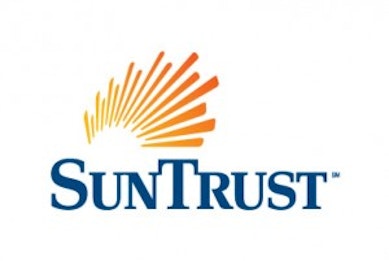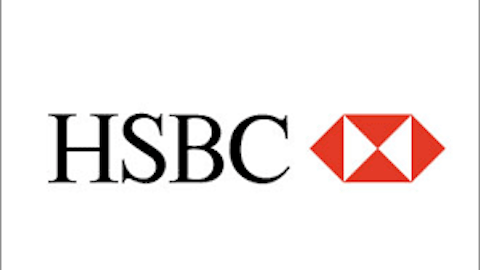SunTrust Banks, Inc. (NYSE:STI) is the holding company and publicly traded side of SunTrust Bank, one of the country’s biggest regional banks. SunTrust primarily does three kinds of banking: consumer banking and private-wealth management; wholesale banking; and mortgage banking.
SunTrust Banks, Inc. (NYSE:STI) puts up some impressive numbers, but there is at least one thing to watch out for. Thinking about investing in SunTrust? Here are seven things you need to know:
1. SunTrust is bigger than you think

2. Great share-price performance over the past year
Since June 12 of 2012, SunTrust Banks, Inc. (NYSE:STI) has returned 49.24% to its shareholders. It’s true, investor darling Bank of America Corp (NYSE:BAC) has returned 83.79% over the past year, but that outsized return comes at the cost of greater balance-sheet and share-price volatility.
3. Solid year-to-date share-price performance
For the past six months, SunTrust Banks, Inc. (NYSE:STI) stock has returned 10.22%, not far off B of A’s own 11.22% performance for the same time period. B of A stock has been on a rocket ride since the start of 2012, but it can’t go up like that forever.
4. Impressive return-on-equity
Return-on-equity, or ROE, is a measure of management performance and gives you some idea of how much profit a company generates with shareholder money. SunTrust’s ROE is an impressive 10.50% 12 months trailing. Lean, mean, profit machine JPMorgan Chase & Co. (NYSE:JPM) has an ROE only slightly higher: 11.55% TTM.
5. Attractive valuation
SunTrust’s price-to-book ratio is 0.85: low enough to make it an attractive buy, but not so low it sets off alarm bells. Speaking of which, B of A’s P/B is 0.66, which is low enough to set off alarm bells. Wells Fargo & Co (NYSE:WFC)‘s P/B is 1.46. As Wells is rightly seen as one of America’s top-notch banks, the number is high enough to make the bank a potentially unattractive buy: too expensive.
6. A reasonable price-to-earnings ratio
SunTrust’s P/E is a very reasonable 8.6. Wells Fargo & Co (NYSE:WFC)’ P/E — again, one of the country’s most highly thought-of public banks — is only 11.71. Since I’ve already picked on B of A so much, I might as well continue: Its P/E is a sky-high 46.6. And you get a complimentary stomach ulcer with that.
7. A mixed quarter
Here’s where I’ll pick on SunTrust a bit. Maybe more than a bit. In the most recent quarter, it had year-over-year earnings growth of 40.80% on revenue growth of 0.10%. According to the press release: “Our expenses declined meaningfully, not only related to the continued abatement of cyclically high costs, but also as a direct result of our concerted efforts to improve our efficiency.”
So at least in part, the bank’s high net-income growth is the result of internal cost cutting. But you can’t do that sort of thing forever: You can only cut off so much fat before you start cutting into muscle. If SunTrust doesn’t start growing its revenue, shareholders won’t continue seeing sky-high income growth of this sort.
Foolish bottom line
SunTrust is big enough to pack a financial punch, has given shareholders impressive returns, and has attractive ratios, but the lack of revenue growth is something to watch out for in second-quarter earnings. Many of the country’s biggest banks are struggling to grow revenue right now, so SunTrust is not alone in this. But sustainable revenue growth is really the final piece to the SunTrust investing puzzle.
The article 7 Things You Need to Know About SunTrust Banks originally appeared on Fool.com and is written by John Grgurich.
Fool contributor John Grgurich owns shares of JPMorgan Chase. Follow John’s dispatches from the not-so-muddy trenches of big-banking and high-finance on Twitter @TMFGrgurich. The Motley Fool recommends American Express and Wells Fargo. The Motley Fool owns shares of Bank of America, JPMorgan Chase, PNC Financial Services, and Wells Fargo.
Copyright © 1995 – 2013 The Motley Fool, LLC. All rights reserved. The Motley Fool has a disclosure policy.



